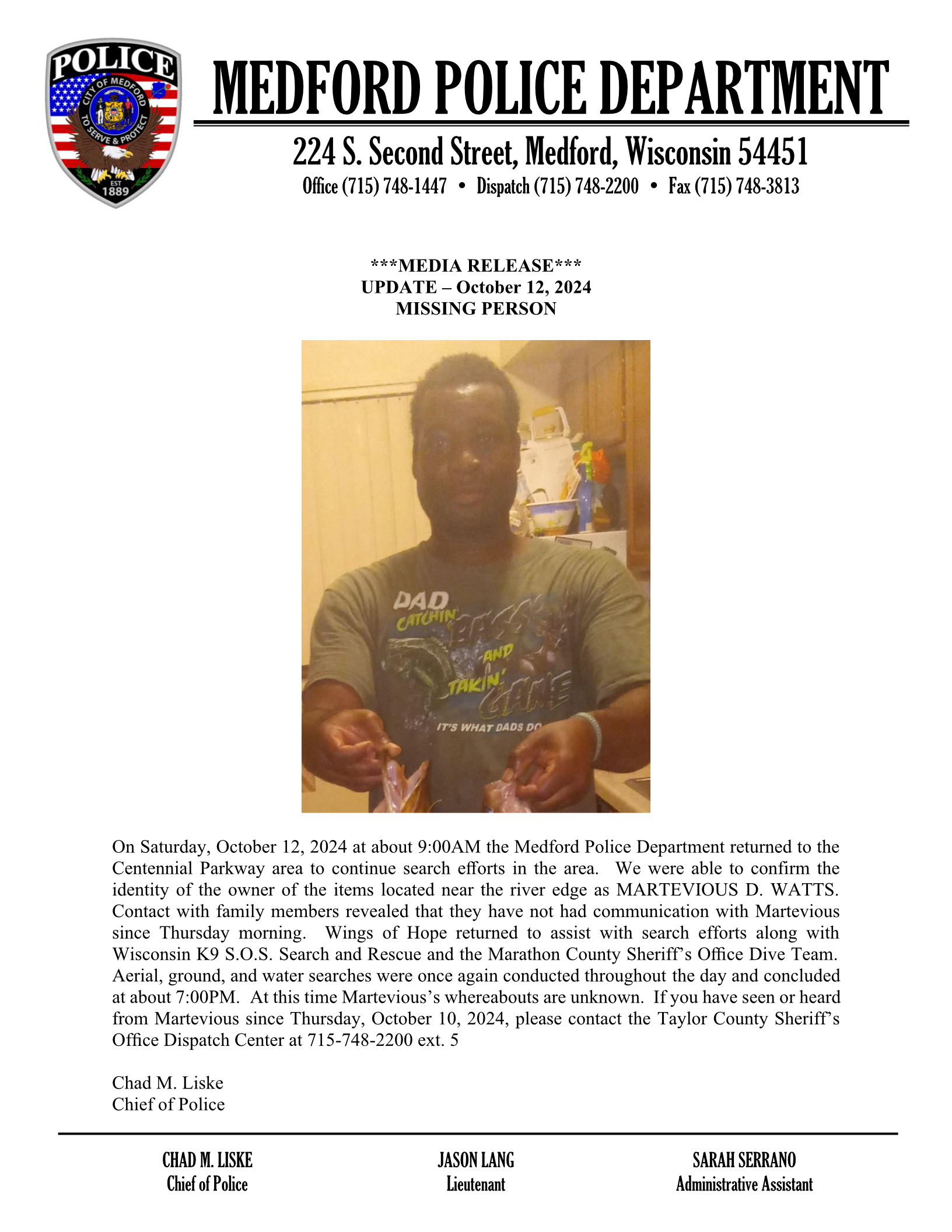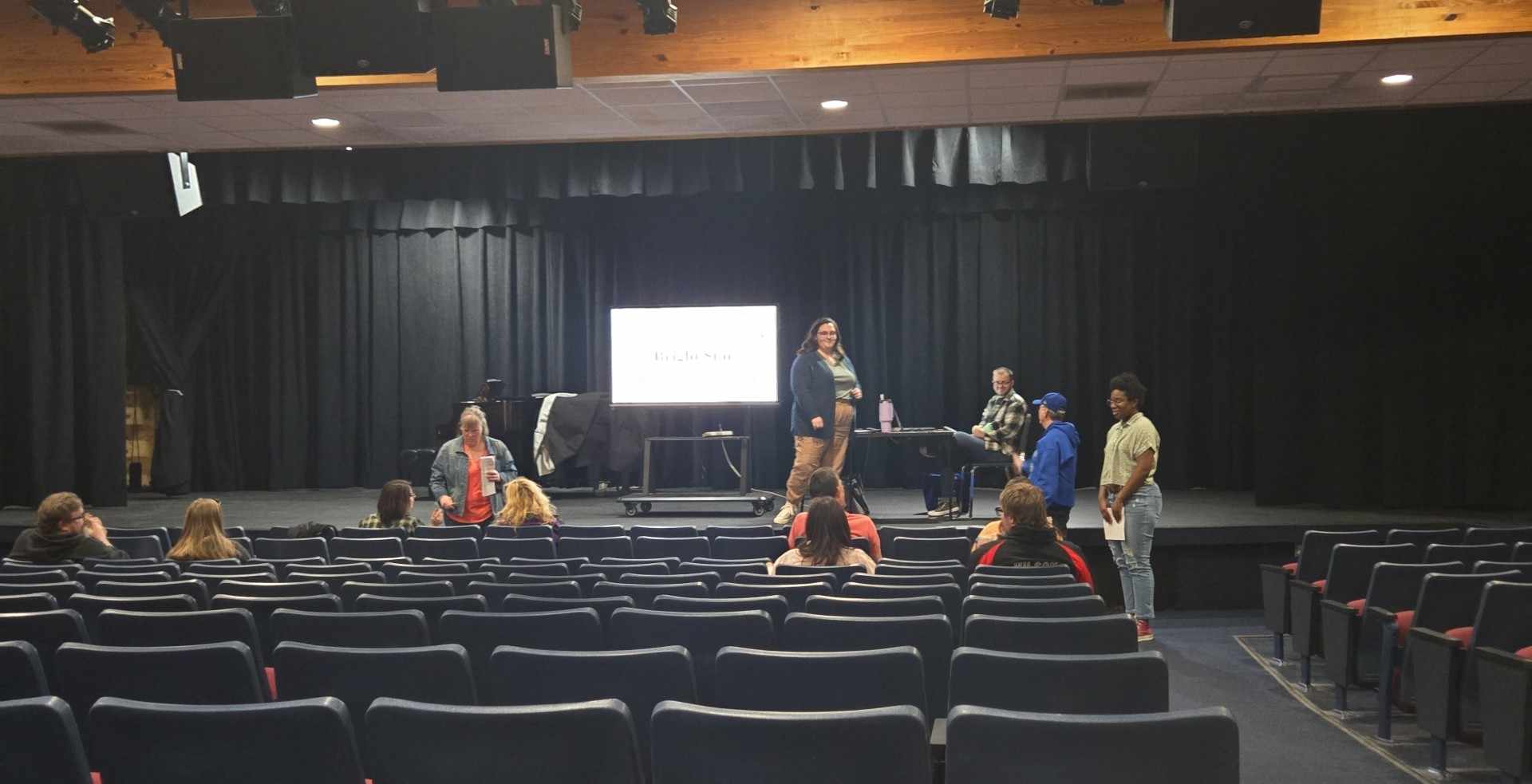Cadott School Board; Annual scorecard goals for 2020-21 nearing completion
By Julia Wolf
The annual scorecard was the topic of discussion during a Committee of the Whole meeting, held by the Cadott School Board, Oct. 26.
District administrator Jenny Starck provided additional information to answer questions board members asked at previous meetings, such as how many parents and students participated in surveys attached to the goals.
“I would recommend, for this year, that we base our goal on FastBridge, instead of the state test,” said Starck.
She says the state test is less certain this year, and the data will take much longer to get back.
Starck also cautioned that, until there is a year with FastBridge scores and state test scores, there is some uncertainty how the test scores correlate.
“In general, it should have some alignment,” said Starck. Members present also supported switching the staff retention goal from a percentage to an actual number of staff, with the goal to maintain the number of staff seeking similar employment elsewhere, to four or fewer.
Al Sonnentag, board member, suggested they could shoot to reduce the number to two or fewer staff members seeking employment elsewhere. Starck says the number of staff leaving for similar employment has been steady at four to five people for the past few years, with two out of the four last year leaving, because their significant other got a job elsewhere and the family moved.
“Because we don’t have a huge staff, it can fluctuate somewhat,” said Starck, adding she does not have a strong preference if the number is set at two, three or four.
Board member Becca Blanchette says she doesn’t think four sounds like a lot, especially when the reasons why the staff members left are factored in. She said it would be more of a red flag is the staff members were leaving because they were unhappy.
The annual scorecard is set for approval at an upcoming meeting.
Members also got a look at policy updates recommended by Neola, an educational consulting firm. Starck says many of the recommended changes are for phrasing and would not have a significant impact on district procedures.
Board members did offer input on a number of the proposed policy changes. One of the policies discussed was entrance age. The entrance age policy clarifies what age students can enter 4K.
“We already have a process and procedure if you want to come in early to five-yearold kindergarten, as a four year old,” said Starck.
She says one of the things discussed, is early admission to 4K as a three year old is not recommended.
“We just feel like, developmentally, even for advanced three-year-olds, that’s a big jump,” said Starck.
She says Neola is looking for a board de- cision on the matter, more than saying the district should, or should not, allow three year olds into the 4K program.
Sonnentag asked if students can repeat 4K as a five year old. Starck confirmed they can, they would just not be able to attend 4K as a three year old, if the policy recommendation is approved.
Another policy where board input was requested, was around using crowd-funding for fundraising. Crowd-funding is online fundraising, such as a GoFundMe page.
Starck says either the board would say they do not permit or sanction crowd-funding, for district or school sponsored programs, or the district would allow crowd-funding, with an approval procedure in place.
When asked her opinion on the matter, Starck says she thinks crowd-funding is OK, adding that it would provide another option for those who would rather donate money, than buy a candle, for example.
“I think there could be a place for it, but that’s something that I know sometimes people have strong opinions about,” said Starck.
Ced Boettcher, board member, asked what the approval process would look like, if crowd-funding is allowed. Starck says either the building or district administrator would approve the fundraisers.
“So, at least they know it’s happening,” said Starck.
Blanchette says, as long as there is a process in place to ensure money raised with the district name attached to it, goes toward the correct thing, she is in favor of allowing crowd-funding.
Sue Shakal, director of finance, says now that the Booster Clubs are separate from the school, crowd-funding may not even be an issue for the district.
All of the policies will be on the agenda for the next board meeting for the first reading.
Starck also showed board members present some of the work she has done, as part of looking into options for starting a charter school. She says she is signed up to attend a grant workshop, related to starting a charter.
Starck also encouraged board members to think of what type of charter they are looking at – whether that is online, personalized learning, an alternate-type school for at-risk students or some other niche.
“We need to have a focus area,” said Starck.
Board member Donna Albarado said she thinks the board was thinking a program similar to eSucceed, the current consortium online school Cadott belongs to.
Starck says charter schools need people for a governance board and that none of those members can be an employee of the school district, which can be difficult.
Starck asked for feedback on if the board would like to go for charter school development, back to CESA for online classes, or both. She also noted starting a charter school usually takes a full year of planning to implement.
Blanchette asked about a full-online option that is not a charter school, just inhouse. Starck said it could be faster to implement, since they wouldn’t need a governance board, but a drawback would be it would not allow for open-enrollment into the program.
Starck says starting a charter does come with some costs, like staffing, as well as some start-up risks. Albarado asked what they would give up, so they are not putting additional costs on the taxpayers.
“There’s no easy answer to be like, ‘Oh, this is the answer that makes us money and doesn’t take so long,’” said Starck.
Members also heard an update on the superintendent goals. Starck presented an $8,650 quote for a consultation company to come in and help establish pay band levels.
“I have not said yes to this quote yet, just because I want board feedback,” said Starck.
Starck noted teacher performance pay is not highly correlated with better student academic outcomes, though could help with staff retention. She says she thinks pay banding may not be the highest priority right now.
After some discussion, members decided not to give input for how to move forward, until the other board members are present.



